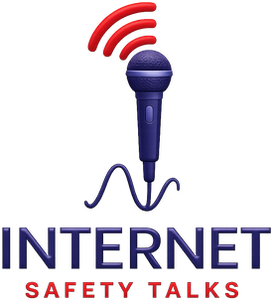
Updated March 2023: Young people are some of the major users of the internet with 95% of teenagers having access to the web. Our article is a practical guide to help children and young people use and enjoy social media platforms in a safe and positive manner – with tips on how to avoid cyberbullying.
Generally, your child’s experiences online are fun and useful. The Internet is a great way to stay in touch, however, it's important for them to be aware of their digital footprint and take precautions.
It can be difficult for children and young people to differentiate between the digital and the real world. The result is often them spending more and more time online – leaving them vulnerable to cyberbullying.
Having a tool kit for tackling cyberbullying is a great start. Get in touch
Where to start?
Start the conversation and talk to your child about how nasty messages, posts and photos can be distributed quickly to a lot of people, some of whom they may not even know, and can be extremely difficult to delete.
Many young people have been involved in cyberbullying either as a target, as a bully, standing by quietly doing nothing, or as someone who participates on the sidelines by liking and sharing posts. It's important to have a discussion with your child about their behaviour online. Are Phone keeping bullying alive in schools.
What is Cyberbullying?
Bullying occurs when there is an imbalance of power, where someone purposely and repeatedly says or does hurtful things to someone else. It can happen individually or in a group of people.
Cyberbullying involves the use of technologies such as the internet, social networking sites, websites, email, text and instant messaging and gaming platforms to repeatedly intimidate or harass others.
Online Safety Speakers. For Schools, Parents & Business!
The #1 Best Internet Safety Speakers
It’s often called trolling, hating and gossiping. However, the intention is to embarrass, humiliate, torment, threaten, or harass.
It can be sustained and repeated and can occur relentlessly and non-stop, and unlike traditional bullying, it can take place in your own home. The damage cyberbullying can cause is extensive – affecting your child’s feelings, self-esteem, reputation and mental health.
Cyberbullying includes:
- Sending harmful or threatening emails, texts and instant messaging.
- Posting embarrassing and humiliating photos of someone online.
- Spreading secrets or gossip.
- Pretending to be someone by using their name on a social media network.
- Tricking someone into revealing personal or embarrassing information and sending it to others.
- Creating online polls on social media sites and encouraging rating of people in negative and nasty ways.
- Repeatedly harming a player's character and ganging up on a player in an online gaming environment.
Some signs of bullying:
- Depression
- Social anxiety, loneliness, isolation.
- Stress-related health problems (headaches, stomach pains)
- Low self-esteem
- School absenteeism and academic problems
- Withdrawal from family and close relationships

If your child is being cyberbullied:
- If they need to talk to someone urgently, anonymously and want advice, use Childline’s online chat facility, which is open every day from 10 to 4 pm
- Leave the online conversation but keep track of the bullying by saving a screenshot of the online message or image.
- Block the hater.
- If their profile or email has been hacked, change their username, password and email address.
- Report the bullying to the school if applicable
There are certain situations where cyberbullying is illegal and should be reported to the police immediately.
Examples are:
- Sharing of naked or sexual images without your child’s consent is often known as revenge porn.
- Death threats.
- Criminal harassment.
Positive things you can do today to help prevent cyberbullying in your family:
Use privacy settings, lock down your child’s content and make sure it as private as possible on the sites they use. Check their privacy settings regularly because they can change.
Remember to always to advise them to “think before you post” anything online.
Talk about not feeling pressured to share photos, selfies or personal information about themselves.
Before sending an image of themselves STOP AND THINK. Ask them – is it something they want everyone to see? Once the image is posted online or sent to someone they know – your child will have no control over what happens to that image ever again.
Never share personal identifying details about themselves, such as their address, date of birth, phone number and school.
Do not share passwords with friends and make sure they are not obvious.
Make it part of your child’s routine to log out of online accounts when they are not using them. Do not give anyone the opportunity to pretend to be your child via one of their accounts. Be careful of saving passwords on web browsers.
Google your child’s name, including in an image search and monitor their digital footprint regularly. If any personal information is revealed go to the relevant safety centre and get the content removed.
Talk about not joining in if they see someone is being cyberbullied. By sharing messages they’ve received, 'liking' a post or passing it instantly makes them part of the problem – your child is spreading the humiliation.
Doing nothing can be just as bad – help and support the person being cyberbullied.
Practical steps for tackling cyberbullying:
Follow the direct links and use the Safety Centres below. They are there to help:
- Report unwanted text messages to your telephone service provider.
- Be aware of your digital footprint and always think before you post.
Get in touch with us, for more information about our internet safety talks for kids and teens.
Articles of Interest
Other articles on Internet Safety Talks which might interest you
- Check out our article about Online Reputation.
- Help I have just seen a naked picture of my daughter
- Safety Guidelines – What parents need to know about Snapchat

